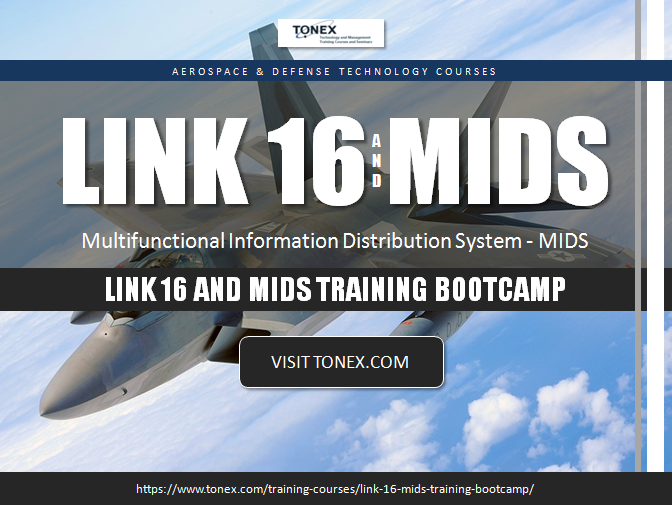Link 16 and MIDS Training Bootcamp is a 5-day extraordinary program gives a review of the ideas of Tactical Data Links and Link 16 and MIDS-LVT terminals, their capacities and tasks, and upkeep as a Link 16 Tactical Data Link Terminal.
Course Objectives
After successful completion of this course, the participants are have the
capacity to:
Depict standards behind Tactical Data Links (TDL) and Link 16
Depict what Link 16 is and how works as a TDL
Depict the contrast between Link 16 with different TDLs and related advancements and conventions, for example, Link 11, Link 22, SADIL, JREAP and VMF
Rundown Link 16 convention, engineering and useful attributes
Depict Link 16 capacities and applications
Depict nuts and bolts of the Link 16 convention, Link 16 system and Link 16 terminal
Characterize Link 16 terminal prerequisites engineering and plan
Clarify Link 16 arrange plan and execution utilizing MIDS
Rundown MIDS highlights and advantages
Depict standards behind MIDS and MIDS-LVT terminals
Describe Link 16 MIDS terminals programming equipment
Depict task of various kinds of MIDS-LVT terminals
Describe concepts behind MIDS-LVT (1) and MIDS-LVT (2) terminals
Portray operational methods behind Link 16 MIDS terminals
Course Topics :
Introduction to Tactical Data Links
Overview of Link 16
Link 16 Communication Protocol and Messages
Overview of MIDS
Overview of MIDS and Low Volume Terminals (LVT)
Multifunctional Information Distribution System-Low Volume Terminal 2/11 (MIDS-LVT 2/11)
Request more information regarding Link 16 and MIDS Training from Tonex.com

Comments
Post a Comment